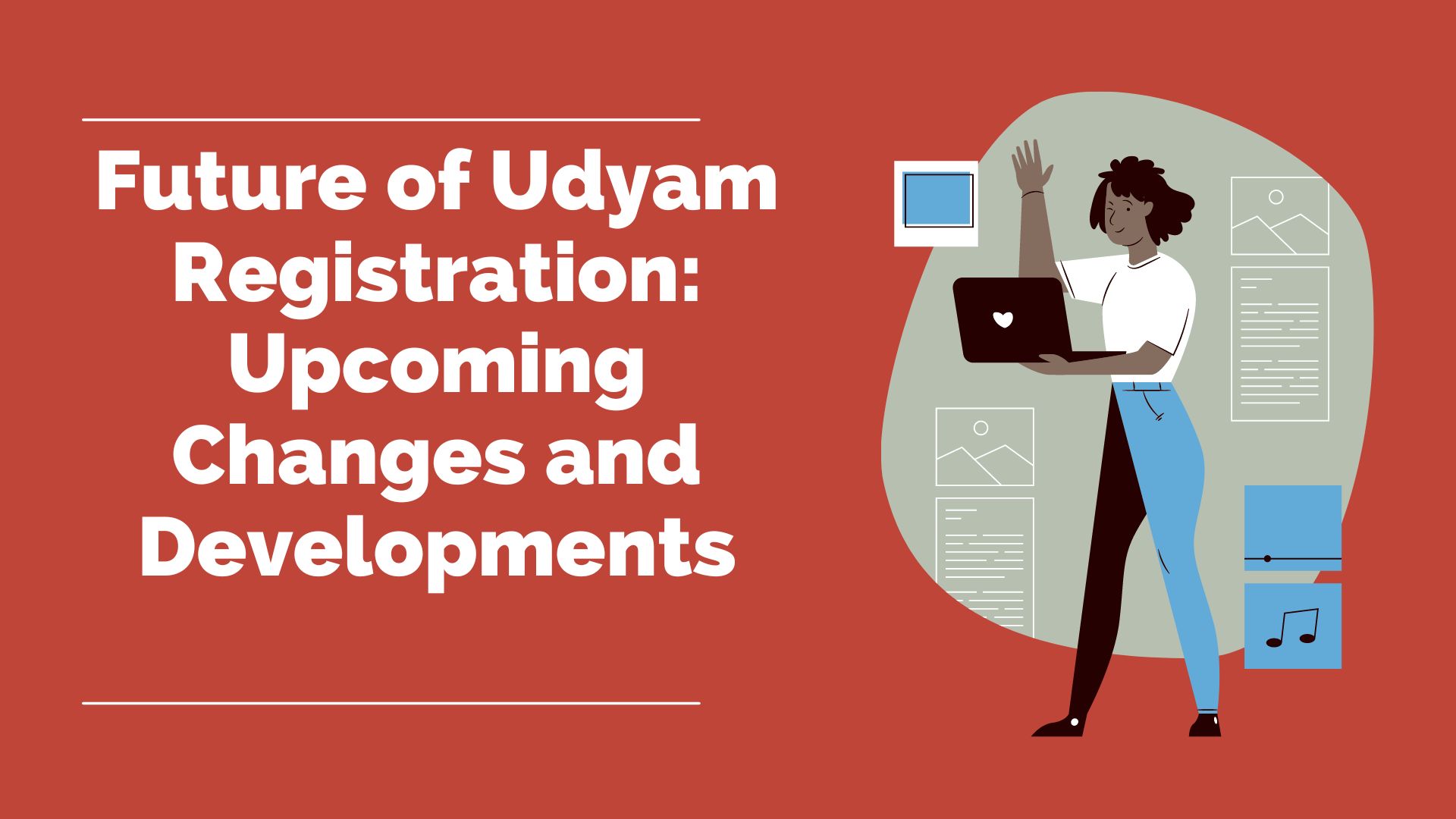
The Udyam Registration process, a vital initiative under the Ministry of Micro, Small, and Medium Enterprises (MSME) in India, has been instrumental in providing businesses with a formal identity and access to various benefits. As the business environment evolves, so does the framework of Udyam Registration. Here’s a look at the anticipated changes and developments in Udyam Registration that promise to shape the future of MSMEs in India.
1. Enhanced Digital Integration
One of the most significant changes on the horizon is the deeper integration of digital technologies into the Udyam Registration process. The government aims to streamline and simplify the registration process by leveraging advanced digital platforms, making it more user-friendly and accessible. This will likely include:
-
AI and Machine Learning: To facilitate faster verification and processing of applications.
-
Blockchain Technology: For ensuring transparency and security in the registration data.
-
Mobile Accessibility: Improved mobile applications to allow MSMEs to register and manage their profiles on the go.
2. Improved Data Analytics and Insights
The future will see a greater emphasis on data analytics to understand the needs and performance of MSMEs better. By analyzing data from Udyam registrations, the government plans to:
-
Identify Trends: Spot emerging trends and challenges faced by MSMEs to formulate targeted policies.
-
Performance Metrics: Measure the effectiveness of existing schemes and make necessary adjustments.
-
Customized Support: Provide customized support and resources to MSMEs based on their specific industry and operational needs.
3. Simplified Compliance and Reporting
To ease the burden of compliance, the Udyam Registration process is expected to introduce simplified reporting mechanisms. This could include:
-
Unified Compliance Platform: A single platform where MSMEs can fulfill all their compliance requirements, including GST, labor laws, and environmental regulations.
-
Automated Reporting: Tools that automate the generation of compliance reports, reducing manual effort and errors.
-
Periodic Updates: Regular updates to ensure MSMEs are aware of any changes in compliance requirements and policies.
4. Expanded Benefits and Incentives
The future of Udyam Registration will likely bring expanded benefits and incentives to encourage more businesses to register. These may include:
-
Financial Assistance: Enhanced access to low-interest loans, subsidies, and grants.
-
Skill Development Programs: More opportunities for training and upskilling, especially in emerging fields like digital marketing, e-commerce, and technology.
-
Market Access: Improved access to domestic and international markets through trade fairs, expos, and online marketplaces.
5. Stronger Support for Women and Minority Entrepreneurs
There will be a stronger focus on promoting inclusivity within the MSME sector. This will involve:
-
Special Schemes: Tailored schemes to support women and minority entrepreneurs, providing them with the necessary resources to thrive.
-
Mentorship Programs: Enhanced mentorship and networking opportunities to help underrepresented groups build successful businesses.
-
Awareness Campaigns: Increased efforts to raise awareness about the benefits of Udyam Registration among women and minority-owned enterprises.
6. Integration with Global Standards
To prepare Indian MSMEs for the global market, Udyam Registration will integrate more closely with international standards. This will involve:
-
Certification Programs: Opportunities for MSMEs to obtain international certifications that enhance their credibility and marketability.
-
Global Partnerships: Collaboration with international bodies and organizations to provide MSMEs with global exposure and business opportunities.
-
Export Facilitation: Support for MSMEs in navigating the complexities of exporting goods and services, including compliance with international trade regulations.
7. Sustainable and Green Practices
Future developments will also emphasize sustainability, encouraging MSMEs to adopt green practices. This will include:
-
Incentives for Sustainability: Financial incentives for businesses that implement eco-friendly practices.
-
Green Certification: Introduction of green certification programs to recognize and promote environmentally responsible MSMEs.
-
Resource Efficiency: Programs to help MSMEs optimize resource use and reduce waste.
Preparing for the Future
To fully benefit from these changes, MSMEs should take proactive steps to prepare for the future of Udyam Registration. Here are some recommendations:
1. Stay Informed
Keeping abreast of the latest updates and changes in the Udyam Registration process is crucial. Businesses should regularly check official government websites, subscribe to newsletters, and participate in workshops and seminars to stay informed about new developments and opportunities.
2. Embrace Digital Transformation
As digital integration becomes more prominent, MSMEs should invest in digital tools and technologies. This includes upgrading their IT infrastructure, adopting digital marketing strategies, and using online platforms for business operations. Embracing digital transformation will not only streamline their Udyam Registration process but also enhance their overall business efficiency.
3. Invest in Skill Development
With the increased emphasis on skill development programs, MSMEs should encourage their workforce to participate in training and upskilling initiatives. This will help them stay competitive and take advantage of new opportunities arising from technological advancements and changing market demands.
4. Focus on Sustainability
Adopting sustainable practices is not only beneficial for the environment but also for business growth. MSMEs should explore ways to reduce their carbon footprint, optimize resource use, and implement eco-friendly practices. This will help them qualify for green certifications and take advantage of incentives for sustainability.
5. Leverage Financial Incentives
With expanded benefits and financial assistance on the horizon, MSMEs should actively explore and apply for various schemes, grants, and loans available through Udyam Registration. This will provide them with the necessary financial support to grow and scale their operations.
6. Build a Strong Network
Networking and collaboration are key to business success. MSMEs should participate in industry associations, trade fairs, and expos to build connections with other businesses, potential clients, and government bodies. These networks can provide valuable insights, support, and opportunities for growth.
Note: Now update udyam certificate through the udyam portal.
Conclusion
The future of Udyam Registration is poised for transformative changes that will enhance the ease of doing business, provide comprehensive support, and foster the growth of MSMEs in India. By embracing these upcoming developments, businesses can look forward to a more efficient, supportive, and inclusive ecosystem that empowers them to achieve greater success.







